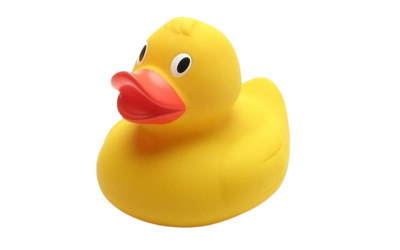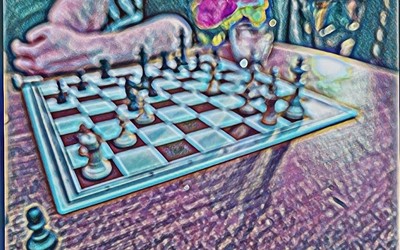
cleanpng.com
How to become... better | Step 2
The easiest step-by-step to get... anywhere (but at least better)Tactics, openings, and all the tea
Solving the questions
Entering this second article, I first have to admit, that I was quite astonished, by how much interest there was in my first-ever blog post. It really made me feel like there was something that needed to be addressed on the one hand, and that it had to be done well on the other hand. Which lead me to an existential crisis, realizing that although I had ideas about what to write about in general, I had no clue in which order, and neither did I know where to start over.
So I had to come up with some proper answers myself. It was when I decided it was best to return to some question marks again to refer to the first post of this series.
Who am I? That's the decisive question that ended the last article. And as you may have answered this one by now, I say it's time you begin to ask questions on your own.
You may as well turn towards your new grown friends or your mentor, a streamer, or a chess-playing person you trust or least know.
Asking a person what to play in certain positions, asking them what they think is a solid opening, or asking what should be considered a good learning strategy - in the end, it's all the same.
You may see that, although there might be differences in their answers (depending on their own style, level of strength, or even their will to give you a good response), it's not so much about the answer itself but the process of learning and investing resources into the game. It all represents the will to understand and reflect. So even in case, you don't get a very satisfying answer, you did something very important. You made up a question, might have reflected on your output, revisited your losses, and maybe even your wins. And you may have recognized weaknesses or strengths. All this may have not been very helpful yet, but it'll soon start to make sense.
The first progress
As this is conceived as a beginner guide, let me start right at the beginning.
Your brain is very much like a muscle. Training means doing the same thing over and over again.
Playing chess is very much exercise. So to grow your muscle, you won't get around "doing" chess over and over again. That's why it's pretty much all the same, whether you play thousands of games (even losing most of them), play all the tactics, or revisit hundreds of studies. You might as well watch a chess streamer all day long. In the end, you force your brain to think in 8x8. And you'll see: it's going to be! And then there will be that one day (or night) when you suddenly start to notice it. You've stopped to move random pieces, you've stopped doing the same old blunder, you stopped that dang unnecessary pawn moves... whatever.
It is right there when your brain starts to think in patterns. And from here on, you can only succeed. Because even losses may turn out to be great victories. On the one hand, that's very plain, because yeah, of course, it is a loss, but you can learn from it. On the other hand, it's even funny because god alone knows how many winning positions I've thrown lol.
The openings
You may wonder, what is an opening?
An opening is that very thoughtful move order at the beginning of each game, which can lead to many positions; some are winning, some have potential, some are interesting, some are very dull and fought out, some can be frustrating, and some are... well, just crap.
Mainly the opening can be understood as a great weapon. Those, who have mastered setting up a good opening strategy, may turn out to be winning in most cases. That's because lots of decisions are made in the opening. And since pawns can't move backward as we all know, this is where most damage comes from, especially regarding beginner's play.
So you may again ask some questions. This time, with the distinct intention to actually collect ideas and strategies. Where should I put my pawns? What am I ought to do with my pieces? Why should I castle my king? In which direction should I castle?? Since there are so many answers, one should actually never really stop asking these questions. They may turn out helpful even while playing.
So it's safe to say you should work on that. In my opinion, it's the most important thing a beginner should work on. Set up a good repertoire or a solid opening variant you start to learn by heart.
Tactics
I already addressed it above; it's not really about the tactics but more about the eagerness to encounter the chess game with an open mind and from all possible directions and perspectives. Still, you won't get around learning and studying some standard tactics to improve little by little. Especially in case you are reading this as an advanced player, tactics should be considered not as a fancy decoration to the game but as an elementary part of it.
However, it is really up to you how you integrate the study of tactics into your overall learning process.
You can do it by buying books, setting up your own little exercises, by a friend that is training you, or even here on lichess (not regarding other chess programs as there are almost as many of them as there are stars in the observable universe).
Personally, I like to solve the daily puzzle here on lichess, as a minimum effort just to stay in contact with the game, even when I can't put up the resources to regular play, but you should really figure out how much and what you prefer to do on your own; just do it, as master Yoda would say.
The Tea
Now, this is the tricky part. Even when combining openings, and tactics, even middle-game studies or end-game practice, you may not become better. At first.
It is really the tea part so to say, which leads to proper play.
In Germany, there is a proverb for this: It's "wait(ing) and sipp(ing) tea". And the longer I think about this, the more I see there could not be a better word for that.
Chess is not a game to be mastered easily, and neither does it take a few weeks to be done with it.
From some point of view, it can be considered an attitude to life. And even the wisest grandmaster is still able to learn.
So in case you've made it this far, wondering "When? When will I become better?" I say you are.
Indeed there is no moment you are not learning and growing; it just may take you some time to recognize.
In the meantime, you might as well just drink a cup of tea ...




